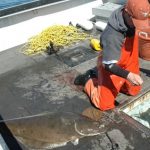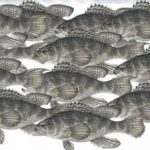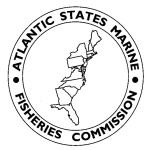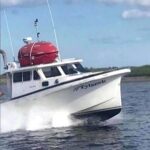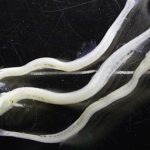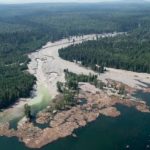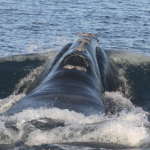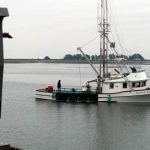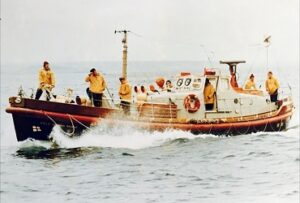Daily Archives: February 8, 2017
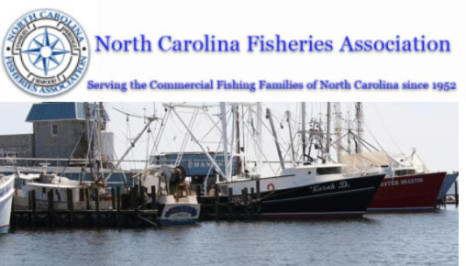
North Carolina Fisheries Association Weekly Update for Februay 6, 2017
Click here to read the Weekly Update, to read all the updates, Click here 20:21
Crabbing: an inherently dangerous job
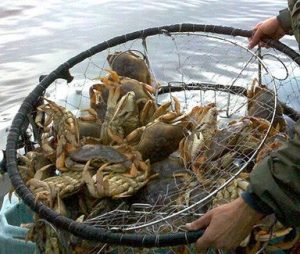 Some may wonder if the 2017 Dungeness crab season was ill-fated: First delayed by weeks to make certain crab were free of domoic acid toxin, delayed again after processors proposed lowering the price paid to crabbers, and then it started with a capsizing near the mouth of the Columbia River that could have cost five lives except for quick intervention by another crabbing boat. Today’s crabbers and fishermen have to be smart and rational to survive — literally and economically. Delays in the season also often have strategic components involving jockeying over price, and competition over crabbing grounds. Sometimes crabbers wait to allow an early-season storm to pass. Read the op-ed here 18:59
Some may wonder if the 2017 Dungeness crab season was ill-fated: First delayed by weeks to make certain crab were free of domoic acid toxin, delayed again after processors proposed lowering the price paid to crabbers, and then it started with a capsizing near the mouth of the Columbia River that could have cost five lives except for quick intervention by another crabbing boat. Today’s crabbers and fishermen have to be smart and rational to survive — literally and economically. Delays in the season also often have strategic components involving jockeying over price, and competition over crabbing grounds. Sometimes crabbers wait to allow an early-season storm to pass. Read the op-ed here 18:59
Factory Boss Says Fishing Technology Could Improve Controversial US Border Wall
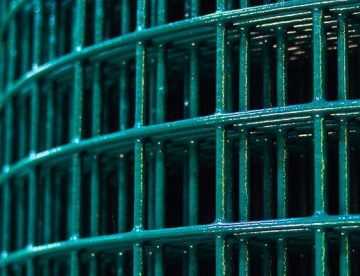 A manufacturing company says skills and technology it developed making lobster traps could help save money on U.S. President Donald Trump’s controversial plan to build a wall along the U.S.-Mexico border. Riverdale Mills’ super-tough steel fence already guards 43 kilometers of the border, and the company says its technology has proven to be a cost-effective way to secure airports, prisons and nuclear facilities. The small firm is based in Northbridge, Massachusetts, and CEO Jim Knott says his company came up with a much better way to make lobster traps. The metal mesh is assembled on huge automated machines that weld many joints at once. The mesh can be made of different sizes of steel, with different size openings for different applications. The mesh is run through a huge vat of molten zinc to protect the product from rust. For lobster traps and other marine applications, the product gets an additional coating of special plant-based plastics that protect the zinc. The plastic formula is a trade secret. Lobster traps have to be sturdy, effective and affordable, and Knott says lessons from making them improved the design and production of mesh for other applications. Read the story here 14:56
A manufacturing company says skills and technology it developed making lobster traps could help save money on U.S. President Donald Trump’s controversial plan to build a wall along the U.S.-Mexico border. Riverdale Mills’ super-tough steel fence already guards 43 kilometers of the border, and the company says its technology has proven to be a cost-effective way to secure airports, prisons and nuclear facilities. The small firm is based in Northbridge, Massachusetts, and CEO Jim Knott says his company came up with a much better way to make lobster traps. The metal mesh is assembled on huge automated machines that weld many joints at once. The mesh can be made of different sizes of steel, with different size openings for different applications. The mesh is run through a huge vat of molten zinc to protect the product from rust. For lobster traps and other marine applications, the product gets an additional coating of special plant-based plastics that protect the zinc. The plastic formula is a trade secret. Lobster traps have to be sturdy, effective and affordable, and Knott says lessons from making them improved the design and production of mesh for other applications. Read the story here 14:56
Proposed Maine Elver Eel Lottery Would Keep Industry Viable
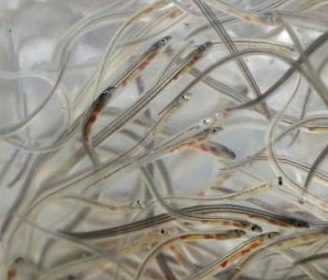 A proposal to create a new lottery system to allow people into Maine’s big-money baby eel fishery is the best way to keep the industry sustainable, some fishermen say. Baby eels are a prized resource in Maine, where they are fished from rivers and streams and sold to Asian aquaculture companies in countries such as China and South Korea. The baby eels, or elvers, can sell for more than $2,000 per pound. The eels eventually get raised to adulthood and turned into food, such as sushi, with some spanning the globe to come back to American restaurants. Right now, entry into the fishery is closed. A Maine trade group for elver fishermen is supporting a proposed state law that would allot new elver fishing permits via a lottery. The group’s president, Darrell Young, said members of the fishery are aging and the lottery system will let new people in. “We’re all getting older and eventually we’re going to pass away,” Young said. “As people die off or give up or whatever, there will be a drawing.” Read the story here 14:36
A proposal to create a new lottery system to allow people into Maine’s big-money baby eel fishery is the best way to keep the industry sustainable, some fishermen say. Baby eels are a prized resource in Maine, where they are fished from rivers and streams and sold to Asian aquaculture companies in countries such as China and South Korea. The baby eels, or elvers, can sell for more than $2,000 per pound. The eels eventually get raised to adulthood and turned into food, such as sushi, with some spanning the globe to come back to American restaurants. Right now, entry into the fishery is closed. A Maine trade group for elver fishermen is supporting a proposed state law that would allot new elver fishing permits via a lottery. The group’s president, Darrell Young, said members of the fishery are aging and the lottery system will let new people in. “We’re all getting older and eventually we’re going to pass away,” Young said. “As people die off or give up or whatever, there will be a drawing.” Read the story here 14:36
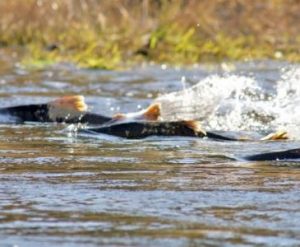
Bay-Delta Water Case Against EPA Advances
A federal judge refused Tuesday to dismiss allegations that the Environmental Protection Agency shirked its duty to review temporary changes California made to its water-quality standards during the drought, an action that environmentalists say shrank the state’s salmon and steelhead fish populations. U.S. District Judge Jon Tigar denied a motion by the EPA to dismiss the lawsuit filed against it last year by the Natural Resources Defense Council, the Bay Institute and Defenders of Wildlife. Tigar said their claims are not moot and that they plausibly alleged that the EPA was required under the Clean Water Act to review the changes to more than two dozen water quality standards to protect fish and wildlife in the Bay-Delta Estuary. Read the story here 13:42
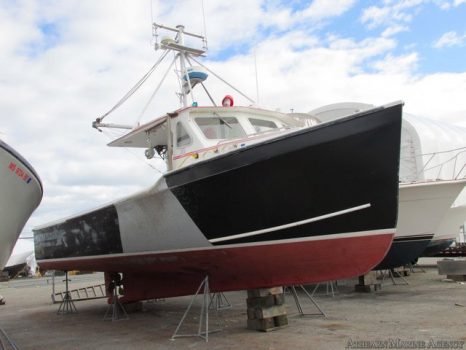
Athearn Marine Agency Boat of the Week: 38′ Dixon Lobster/Gillnetter, 375HP, 6 Cylinder John Deere
Specifications, information and 27 photo’s click here To see all the boats in this series, Click here 12:36
Fishing For Litter: We’ve got ‘healthier’ fish after success of the sea litter scheme
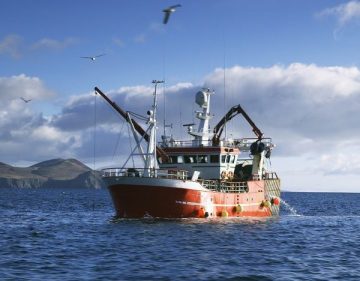 It may be a load of rubbish but for the fishing industry, the discarded waste being piled up at harbours across Scotland is netting them a prize catch. Fishing boats once dumped junk they hauled up in their nets back overboard. Now they bag the refuse and take it to port to be disposed of. The Fishing For Litter scheme has just reached the milestone of pulling 1000 tonnes of potentially dangerous refuse from the seabed. Jimmy Buchan, who starred in the BBC TV series Trawler-men, documenting the work of fishermen, said: “When we first started it, we would maybe lift a tonne of rubbish in a trip but I know it is working because now we hardly fill the bottom of a bag. “What we have done means that we are having an environmentally positive effect.” Read the story here 12:07
It may be a load of rubbish but for the fishing industry, the discarded waste being piled up at harbours across Scotland is netting them a prize catch. Fishing boats once dumped junk they hauled up in their nets back overboard. Now they bag the refuse and take it to port to be disposed of. The Fishing For Litter scheme has just reached the milestone of pulling 1000 tonnes of potentially dangerous refuse from the seabed. Jimmy Buchan, who starred in the BBC TV series Trawler-men, documenting the work of fishermen, said: “When we first started it, we would maybe lift a tonne of rubbish in a trip but I know it is working because now we hardly fill the bottom of a bag. “What we have done means that we are having an environmentally positive effect.” Read the story here 12:07
Everglades National Park Superintendent suspends new fee after outcry
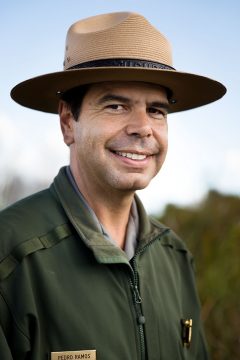 Following pushback from some local professional fishing guides, Everglades National Park Superintendent Pedro Ramos has suspended a new rule that would have required a per person fee for vessels entering federal waters in Florida Bay. Late last month, a park email was circulated that informed a handful of Upper Keys guides that enforcement of an entrance fee for people on vessels would begin in April. This included customers aboard a commercial boat, recreational anglers on a personal boat and kayakers. The park’s general management plan, which became effective last year after over a decade in the making, said that vessels in the future could be charged a per person fee. It didn’t have a specific date, though. Last month was the first many became aware of the plan to enforce it. Currently, an entrance fee is paid only by those coming to the park by land.. Read the story here 11:32
Following pushback from some local professional fishing guides, Everglades National Park Superintendent Pedro Ramos has suspended a new rule that would have required a per person fee for vessels entering federal waters in Florida Bay. Late last month, a park email was circulated that informed a handful of Upper Keys guides that enforcement of an entrance fee for people on vessels would begin in April. This included customers aboard a commercial boat, recreational anglers on a personal boat and kayakers. The park’s general management plan, which became effective last year after over a decade in the making, said that vessels in the future could be charged a per person fee. It didn’t have a specific date, though. Last month was the first many became aware of the plan to enforce it. Currently, an entrance fee is paid only by those coming to the park by land.. Read the story here 11:32
Killer virus that devastated Gold Coast prawn farmers is on the doorstep of Moreton Bay’s multimillion-dollar fishing industry.
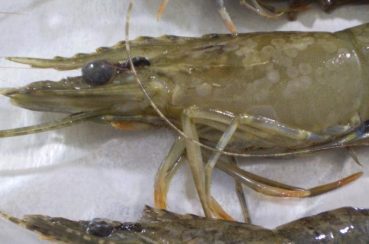 More than 100 wild prawns just south of the Logan River in Southern Moreton Bay have tested positive to the virus responsible for the deadly white spot disease. The virus can kill whole ponds of prawns within days and experts fear it could easily spread to other crustaceans such as mud crabs and Moreton Bay bugs. Announcing the positive testing of 108 wild prawns yesterday, Biosecurity Queensland confirmed the outbreak that ravaged prawn farmers for the past two months had been found outside the Logan River for the first time. Griffith University ecologist Professor Michelle Burford said the disease could move into the main part of Moreton Bay, threatening a large chunk of Queensland’s $120 million wild-caught fishing industry. “There is every potential for the disease to move into other areas,” Prof Burford said. Read the story here 09:41
More than 100 wild prawns just south of the Logan River in Southern Moreton Bay have tested positive to the virus responsible for the deadly white spot disease. The virus can kill whole ponds of prawns within days and experts fear it could easily spread to other crustaceans such as mud crabs and Moreton Bay bugs. Announcing the positive testing of 108 wild prawns yesterday, Biosecurity Queensland confirmed the outbreak that ravaged prawn farmers for the past two months had been found outside the Logan River for the first time. Griffith University ecologist Professor Michelle Burford said the disease could move into the main part of Moreton Bay, threatening a large chunk of Queensland’s $120 million wild-caught fishing industry. “There is every potential for the disease to move into other areas,” Prof Burford said. Read the story here 09:41
SLO County supervisors vote 3-2 to oppose Chumash National Heritage Marine Sanctuary
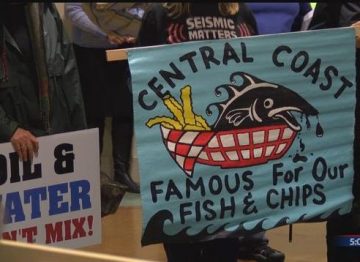 After hours of public comment and discussion, the San Luis Obispo County Board of Supervisors voted 3-2 passing a resolution to oppose the proposed Chumash National Heritage Marine Sanctuary. Prior to the 9:00 a.m. meeting, protestors rallied in front of the County Government Center in downtown San Luis Obispo, holding signs in support of the sanctuary,,, Opponents of the sanctuary argue it’s unnecessary. “The marine sanctuary is an overreaching regulatory issue and we don’t need it here on the Central Coast,” said Amber Johnson, a local political consultant. Others who also opposed the sanctuary said it would hurt the small commercial fishing industry and that there doesn’t need to be another layer of government. Chris Voss, a commercial fisherman from Santa Barbara, said he’s experienced the negative side of coastal sanctuaries. “Their declaration that they will not interfere with local fisheries has not been the case,” Voss said. Read the story here 09:00
After hours of public comment and discussion, the San Luis Obispo County Board of Supervisors voted 3-2 passing a resolution to oppose the proposed Chumash National Heritage Marine Sanctuary. Prior to the 9:00 a.m. meeting, protestors rallied in front of the County Government Center in downtown San Luis Obispo, holding signs in support of the sanctuary,,, Opponents of the sanctuary argue it’s unnecessary. “The marine sanctuary is an overreaching regulatory issue and we don’t need it here on the Central Coast,” said Amber Johnson, a local political consultant. Others who also opposed the sanctuary said it would hurt the small commercial fishing industry and that there doesn’t need to be another layer of government. Chris Voss, a commercial fisherman from Santa Barbara, said he’s experienced the negative side of coastal sanctuaries. “Their declaration that they will not interfere with local fisheries has not been the case,” Voss said. Read the story here 09:00


































